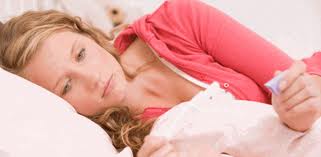Vaginal pain or pelvic pain commonly happens among women during intercourse, or during period resulting in discomfortable and hard to reach orgasm in sex life. Can it be a tough problem? Get to know common causes of vaginal pains and this trouble will not be your worry any longer. 
“There are many causes for vaginal pain,” says marriage and family therapist Isadora Alman, MFT (Masters of Family Therapy), a board-certified sexologist and a psychotherapist in private practice in Alameda, Calif. Causes include:
- A hymen that hasn’t been completely penetrated
- Inflammation from sexually transmitted diseases
- An acute infection like vaginitis
Other potential causes of vaginal pain and lower pelvic pain can include:
- Vaginal dryness
- Infections or other problems with the digestive system, especially the bowels or the bladder
- Strains, sprains, or weakness of the back
- Fibromyalgia, a chronic widespread pain syndrome
- Cysts on the ovaries
- An ectopic pregnancy
- Fibroids
- Endometriosis
These issues can cause vaginal pain when you’re not engaging in sex, but the thrusting movements of the penis during sex may make your vaginal pain considerably worse.
Pain in the vaginal area is completely common among women. It is probably a top complaint among women. However, too often women do not do enough about this condition to treat it properly. Treating vaginal pain means treating the cause of it. Just taking something for the pain can help the woman to feel better, but it won’t help her take care of the problem that started causing the pain in the first place. There are some common treatments for the majority of vaginal pain cases.
- Yeast infection treatments are advisable for women who are experiencing burning and itching along with their pain. If a woman has never had this problem before, she may want to consult her doctor, just to be safe.
- Different sexual positions or methods are also a consideration. If a partner is very large or if the sexual act is painful, there are lubricants that can help and there are also other positions which may ease pressure on the vagina. If these things do not help or the woman develops other symptoms, a visit to her doctor is in order.
- Visit the doctor and ask him or her specific questions about the discomfort in the vaginal area. The doctor could recommend specific treatment options that could be beneficial to promote healing and a better life.
- Get help with menopause problems. This is something to discuss with the doctor and the sooner it is brought up the better.
